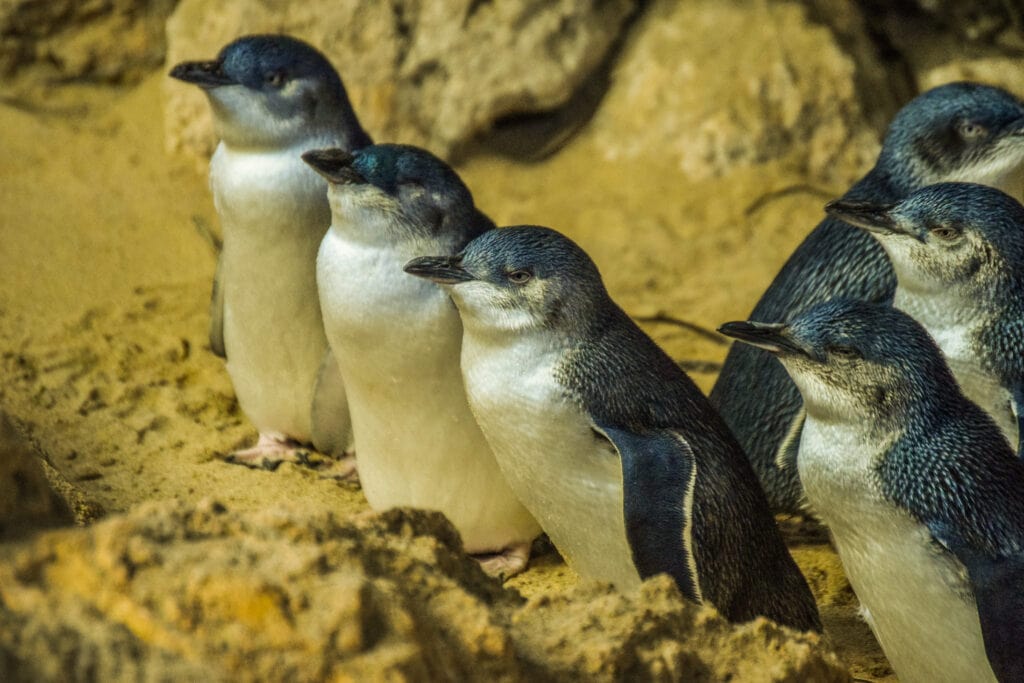Little Penguins, also called “Little Blue Penguins,” “Fairy Penguins,” and “Korora,” are the smallest living penguins on earth. They are the only penguins with blue feathers and are known for being charming, cute, and clumsy on land. Phillip Island in Australia is home to Australia’s largest Little Penguin colony which is home to around 40,000 birds. The Phillip Island colony is a major draw for tourists who enjoy watching the “penguin parade,” wherein Little Penguins march onto the beaches each night.
Related Article: Extinct Bachman’s Warbler Genome Sequenced
The family tree of these lovable pint-sized penguins has recently grown thanks to the discovery of fossilized remains belonging to an ancient relative of the Little Penguin. The new species has been named the “Wilson’s Little Penguin,” and is believed to have been similar in size to modern Little Penguins. Two Wilson’s Little Penguin fossils were found, the skulls of an adult and a juvenile.
Because only skulls have been found, some of the speculation regarding the anatomy of these ancient birds are built on educated guesses, however it is thought that much of their anatomy paralleled their surviving Little Penguin relatives. The extinct birds were found to have slightly narrower skulls than modern Little Penguins, but the Wilson’s Little Penguin is thought to have weighed about two pounds and stood just over a foot tall, much like modern Little Penguins.
One of the most interesting discoveries that these new fossils suggests to scientists is the fact that it seems that diminutive penguins have lived in New Zealand for at least three million years. The discovery of the Wilson’s Little Penguin suggests that, despite millions of years of environmental changes, little penguins have always called New Zealand their home.
It is hoped that understanding the past of the Little Penguin might be the key to safeguarding the future of this unique and beloved species. While Little Penguins are relatively stable as a species, a great deal of alarm was raised last year when more than 500 of these birds were found dead on beaches across New Zealand.
It was noted at the time that climate change poses particular challenges to this species which heavily depends upon fish stocks to survive. Understanding the reasons why this family of penguins has managed to persist over millions of years could provide the key to ensuring a future for Little Penguins in New Zealand and Australia.
Popular Article: UC Berkeley Study Examines Hummingbird Alcohol Consumption

